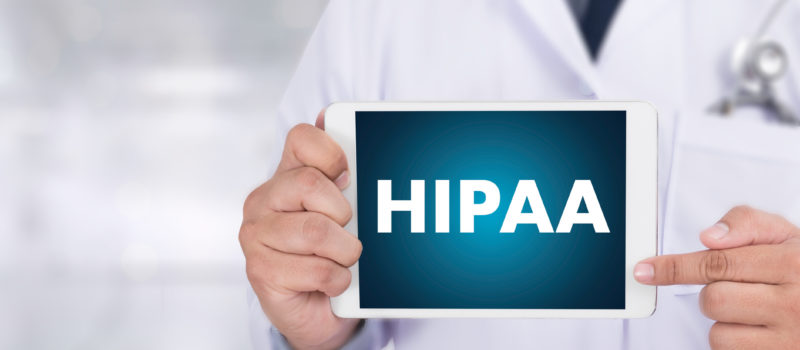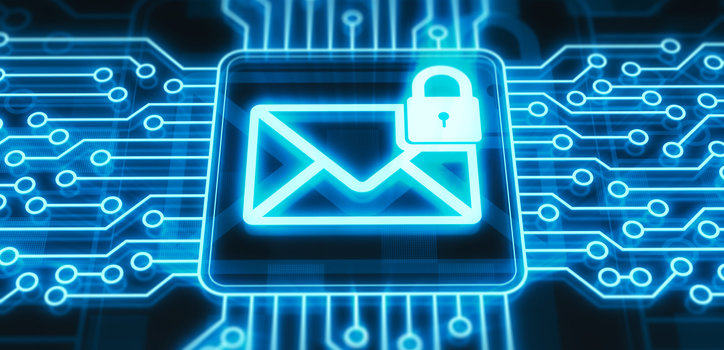Emails are a fundamental tool for communication within the healthcare sector, often containing sensitive Protected Health Information (PHI). Adhering to the Health Insurance Portability and Accountability Act (HIPAA) for email communications is not only a legal obligation but also crucial for maintaining the confidentiality and security of patient information.
This article will guide you through the key steps to ensure that your email practices are fully compliant with HIPAA standards, thus protecting patient data and upholding the trust placed in healthcare providers.
Quick Takeaways
- Encrypting emails containing Protected Health Information (PHI) is critical for preventing unauthorized access and ensuring compliance with HIPAA.
- Setting up rigorous access controls ensures that only authorized personnel can access sensitive patient information, safeguarding against internal breaches.
- Keeping detailed logs of who accesses and modifies PHI helps in monitoring compliance and quickly addressing any potential security incidents.
- Regularly updating policies and training staff are vital for adapting to new threats and maintaining compliance with evolving HIPAA regulations.
Understanding HIPAA Compliance for Emails
HIPAA sets rigorous standards to protect individuals’ medical records and other personal health information managed by healthcare providers, insurance plans, and related entities.
Compliance in the realm of email communications requires understanding the HIPAA Privacy Rule and the HIPAA Security Rule. The Privacy Rule protects the privacy of individually identifiable health information, while the Security Rule sets standards for securing electronic Protected Health Information (ePHI) to prevent data breaches and unauthorized access.
Emails that contain ePHI must be handled with high levels of security to meet these regulations, ensuring that patient information is protected throughout its transmission and storage.
Risks of Non-Compliance
Failing to comply with HIPAA can result in severe consequences, including substantial fines and legal penalties. Non-compliance risks extend beyond financial damage, potentially harming an organization’s reputation and eroding patient trust—a critical asset in healthcare.
For example, in 2024, a significant majority (81.2%) of large healthcare data breaches were attributed to hacking and IT incidents, underscoring the critical need for robust cybersecurity measures, particularly in email communications, which are frequent targets of these attacks.

This statistic demonstrates the heightened risk associated with inadequate email security and the importance of adhering to HIPAA’s stringent requirements to safeguard sensitive patient information. Violations can lead to civil and criminal penalties, varying based on the extent of negligence and the perceived harm to patients.
Regular cases of non-compliance can also trigger audits and further scrutiny from regulatory bodies, emphasizing the need for healthcare entities to meticulously manage their email systems to ensure full compliance with HIPAA mandates.
Essential Steps to Ensure HIPAA Compliance in Emails
Ensuring HIPAA compliance in email communications involves several critical steps:
Email Encryption
Encrypting emails that contain PHI is crucial. Encryption protects data from unauthorized access during transmission, making it unreadable to anyone other than the intended recipient. This step should be non-negotiable for any organization handling sensitive health information via email.
Access Controls
It is imperative to implement stringent access controls. These controls ensure that only authorized personnel can access PHI, preventing potential breaches from within an organization. Detailed user permissions and role-based access help maintain strict oversight.
Audit Trails
Maintaining comprehensive audit trails is essential for tracking access and alterations to PHI. Audit trails help in identifying and responding to potential security incidents promptly. They also provide verifiable evidence during compliance reviews or audits.
Secure Email Platforms

Utilizing email services that comply with HIPAA’s security provisions is crucial. These platforms provide built-in security features that address compliance requirements directly. Ensure the platform offers comprehensive security measures that include regular security assessments and updates.
Training and Policies
Regular training programs for all employees handling PHI are vital. These programs, alongside clear, enforced policies on email use, can significantly reduce the risk of accidental breaches and non-compliance. Training should be an ongoing process, with refreshers to address new threats and changes in regulations.
Choosing the Right HIPAA Compliant Email Service
Selecting a HIPAA-compliant email service is fundamental to maintaining compliance. When choosing a service provider, consider the following features:
- Data Encryption: Ensure that the service offers end-to-end encryption both in transit and at rest.
- Advanced Access Controls: Look for features that allow detailed control over who can access and share PHI.
- Comprehensive Audit Features: The ability to monitor and record all access and modifications to PHI is essential.
- Agreements and Certifications: A reputable email service provider will offer a Business Associate Agreement (BAA), which is a HIPAA requirement for entities handling PHI.
A provider that guarantees these features will help ensure that your email communications adhere to HIPAA regulations, reducing the risk of data breaches and non-compliance.
Best Practices for Maintaining HIPAA Compliance
To continuously uphold HIPAA compliance in email communications, healthcare organizations should:
- Conduct Regular Audits: Regularly review and update security measures to address emerging threats and vulnerabilities.
- Update Policies Frequently: As technology and regulations evolve, so should policies. Regular updates ensure practices remain compliant with current HIPAA standards.
- Ongoing Training: Continuous education and awareness programs for staff are crucial to prevent breaches and ensure everyone understands their role in maintaining compliance.
Implementing these best practices will not only ensure compliance but also fortify the trust patients place in their healthcare providers.
Ensure HIPAA Compliance Today with Intermedia
Upholding HIPAA compliance in your email communications is essential for protecting patient privacy and avoiding significant penalties. By implementing the described measures and continuously updating security practices, healthcare providers can ensure they meet the necessary standards. Safeguarding PHI not only complies with the law but reinforces the trust patients place in the healthcare system.
Explore Intermedia’s range of HIPAA-compliant email solutions designed to secure your communications and enhance your compliance efforts. Contact us today to learn how we can support your organization in maintaining the highest standards of email security.
April 11, 2025
Explore other posts on these topics: Compliance Healthcare




